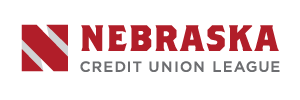The U.S. Mint is encouraging the public to “help get coins moving.”
“Coins aren’t circulating through the economy as quickly as they were prior to the COVID-19 pandemic, which means that sometimes coins are not readily available where needed,” said David J. Ryder, U.S. Mint director, in a public service announcement recently released. “This is NOT a coin supply problem. It’s a circulation problem.”
Ryder encouraged the public to “help get coins moving” by using exact change when making purchases, taking coins to financial institutions or turning them in for cash at coin sorter or recycling kiosks.
Ryder also advised that individuals should remember to follow all health and safety guidelines when out spending or recycling coins.
The public service announcement follows recommendations from the Federal Reserve’s new “limited-scope, limited duration” U.S. Coin Task Force, which was created to identify, refine and promote strategies to resolve the coin supply chain issues resulting from COVID-19-related disruptions to normal coin circulation.
After convening in July, the task force released its initial recommendations for addressing the coin circulation issues, including:
— urging Americans to return their spare change to circulation by using it for retail transactions, depositing it with financial institutions, and/or redeeming it at coin recycling kiosks;
— identifying sources of “friction” that prevent the smooth functioning of the coin supply chain, including consumers’ redemption of coins, which has slowed due to limited access to financial institution lobbies;
— encouraging consumer-facing campaigns to promote awareness of the need for coin recirculation and development of ideas to encourage consumers to act;
— preparing best practices for financial institutions and retailers to get coin from consumers and recirculated through the supply chain via their armored carriers; and
— assisting supply chain participants, such as financial institutions, retailers, consumers and other coin handlers to reduce the most critical industry-specific points of friction.
Task force members represent several major participants in the coin supply chain, including credit unions.



